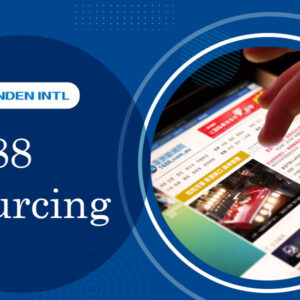Whenever you apply for a loan or a credit card, your credit score is the first thing that lenders check. It is a 3-digit number generated by credit bureaus like TransUnion CIBIL, Experian, Equifax and High Mark, based on your credit information shared by banks and financial institutions. An excellent CIBIL score improves your chances of approval for loans and credit cards and it could also help you avail credit at lower rates of interest.
Despite rising awareness around the importance of credit score, several myths around credit report and credit score are still prevalent, which could have negative impact on your credit score. In this article, we talk about 5 such myths and debunk them.
Myth: Checking your credit score leads to a drop in your score
Fact: Hard enquiry on your credit profile leads to a temporary drop in your score. However, soft enquiries do not affect your score negatively.
A hard enquiry is initiated when a lender pulls your credit information from one of the credit bureaus. This typically happens when you apply for a new loan or credit card. A hard enquiry shows that you are in need of more debt and, as a result, your credit score suffers a temporary drop. However, when you check your credit score from any of the bureaus or through a third-party platform like Paisabazaar, it is considered a soft enquiry and does not impact your score. Checking your credit score and credit report regularly is, in fact, a good practice. It helps you check for inaccuracies, report any errors and track progress in your credit score.
Myth: Higher the income, higher the credit score
Fact: Your income is not considered when calculating your credit score. It is based only on your credit information and how you handle debt.
Credit bureaus generate your credit report and credit score based on data shared by your lenders. This includes your outstanding dues, payment patterns, missed payments, etc. They also take into account your credit utilisation ratio that shows the portion of your total credit limit that you are currently using. Average age of your credit, credit mix and hard enquiries are all taken into consideration to arrive at your score. However, your job or your income has no impact on your credit score. Even if you have a low income but you are managing your loans and credit card payments with discipline, you can have an excellent credit score. Similarly, a high income but poor credit management will result in poor credit score.
Myth: Having no credit history is good for you
Fact: When you have no credit history, lenders would not be able to judge your creditworthiness and hence, you might not get easy approvals.
If you have never had a credit card or never taken a loan, you will not have a credit score. Such consumers are categorized, as ‘New to Credit’ and many banks and financial institutions are apprehensive about sanctioning a loan or credit card to such individuals. This is because they have no data related to how they have handled credit in the past and it would be difficult for them to assess their creditworthiness. Hence, it is advised to start on your credit journey as early as possible. You can get an entry-level credit card to begin with. If you are not eligible for a regular unsecured card, a secured credit card backed by a fixed deposit could also be a good option.
Myth: Having multiple credit cards is bad for your credit score
Fact: You can have multiple credit cards as long as you clear all your dues on time.
A number of consumers still believe that holding too many credit cards can have negative impact on your credit score. However, the fact is- you can keep several credit cards and it would not affect your score negatively, as long as you pay the total amount due in full and on time. Similarly, closing a credit card account would not repair your credit score miraculously. In fact, when you close one of your older credit card accounts, it could lead to a drop in your score as the average age of your credit reduces. A longer credit history with a good mix of loans and credit cards would work in your favour in the long run.
Myth: Errors in credit report are irreversible
Fact: In case you find errors in your credit report, you can file a complaint with the bureau and get it rectified at the earliest.
Credit scores are generated on the basis of data shared by lenders. Sometimes, due to clerical errors on part of the lender or the bureau, erroneous information may be updated in your report. This could include wrong credit card or loan accounts opened in your name, credit card bills showing unpaid even after you have paid them or credit enquiries you did not initiate. Such errors, if not rectified on time, can have lasting impact on your score. Hence, it is advised to check your credit report regularly and contact the bureau or lender as quickly as possible, in case you find errors.
As a smart consumer, it is crucial to clear up any doubts or misconceptions you may have regarding credit scores, including how they’re calculated, the factors that influence them, and how they function. Misinformation can negatively impact your credit-building efforts. Additionally, responsible credit card use and timely repayment of dues are key to sustaining a healthy credit score over time.




